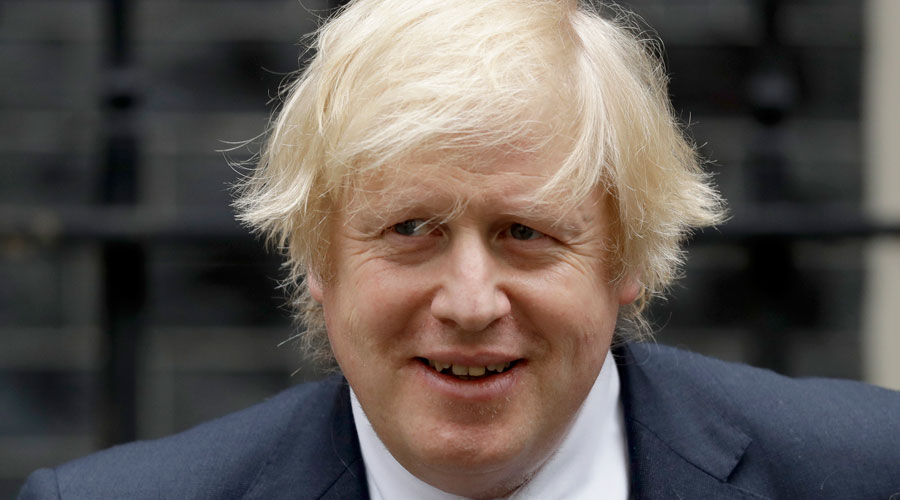Despite being preoccupied with trying to save his premiership, Boris Johnson spoke to Vladimir Putin and warned the Russian President that “any further incursion into Ukrainian territory would be a tragic miscalculation”.
“Dialogue and diplomacy is the only way forward,” he added.
Boris should have called Putin on Monday but postponed their conversation until Wednesday after which the British Prime Minister tweeted: “I spoke to President Putin this afternoon to express my deep concern about Russia’s hostile activity on the Ukrainian border.”
As for his personal situation, Boris gave an interview to the Sun tabloid during his trip to Ukraine on Tuesday when he again said he had no plans to quit. “I am getting on with the job and I will do so for as long as I have the privilege and honour to serve in this position,” he said.
But at a loss to explain to the Sun how he has gone from hero to zero in just a few months, the Prime Minister replied: “I make no commentary but I am focussed on the next election.”
Meanwhile, in the Commons on Thursday, the chancellor, Rishi Sunak, announced plans to deal with the surge in global energy prices — which would be made worse by a possible interruption of gas supplies from Russia if there was to be a war in Ukraine. When asked if the City of London would react in kind if Russia “weaponised” gas supplies, Sunak said: “Nothing is off the table.”
From April, the energy cost for the average British customer on a default tariff will rise by 54 per cent to £1,971 a year from £1,277. Sunak announced discounts of £200 on gas bills and £150 on council tax — which would be claimed back later in instalments.During an interview with the BBC’s political editor, Laura Kuenssberg, Sunak was asked by if he worried that the reporting of Downing Street parties had damaged the public’s confidence in the government. “Yes, I think it has,” he replied. “I can appreciate people’s frustration. And I think it’s now the job of all of us in government, all politicians, to restore people’s trust.”
On whether Boris always told the truth, Sunak responded: “Yes, of course he does. He is the Prime Minister of the United Kingdom.”
It was pointed out that some Tory MPs believe Sunak, as one of the most powerful figures in the government, would be a frontrunner to replace the Prime Minister, should he go.
“Well, that’s very kind of them to suggest that,” Sunak said. “But what I think people want from me is to focus on my job... I know a few of my colleagues have said that and they’ll have their reasons for doing that. But I don’t think that’s the situation we’re in. The Prime Minister has my full support.”
Asked if he would run to be the next Tory leader and prime minister, should there be a vacancy, Sunak did not quite answer the question: “No, that’s not what I’m focused on.”
The MP for Richmond, North Yorkshire, who has been chancellor since just before the pandemic started, said his job was “stressful and tiring” but an “enormous privilege”.
Putin will realise that although the British government is in turmoil, the UK remains the most important player in the current crisis after the United States.
The Kremlin commented: “Nato’s unwillingness to adequately respond to Russia’s well-founded concerns was noted, while hiding behind references to the (Nato) alliance’s so-called open-door policy, which contradicts the fundamental principle of indivisibility of security.”
One complication for Britain is that a great deal of “dirty” Russian money goes through the City of London. And some Russians have made significant donations to the Conservative Party.
On Monday, the foreign secretary Liz Truss announced plans to toughen the sanctions regime against Russian oligarchs with links to the Kremlin.
Truss said the government would publish a long-delayed review by April 5 into how more than 700 wealthy Russians, who secured so-called Tier 1 visas allowing them to live in the UK, had acquired their wealth.
In 2018, the government estimated £100bn of “dirty money” had flooded into the UK, from countries including Russia. Two years later the parliamentary intelligence and security committee said the City of London provided “ideal mechanisms” for the recycling of illicit finance, adding it had become a “laundromat” for offshore wealth.











